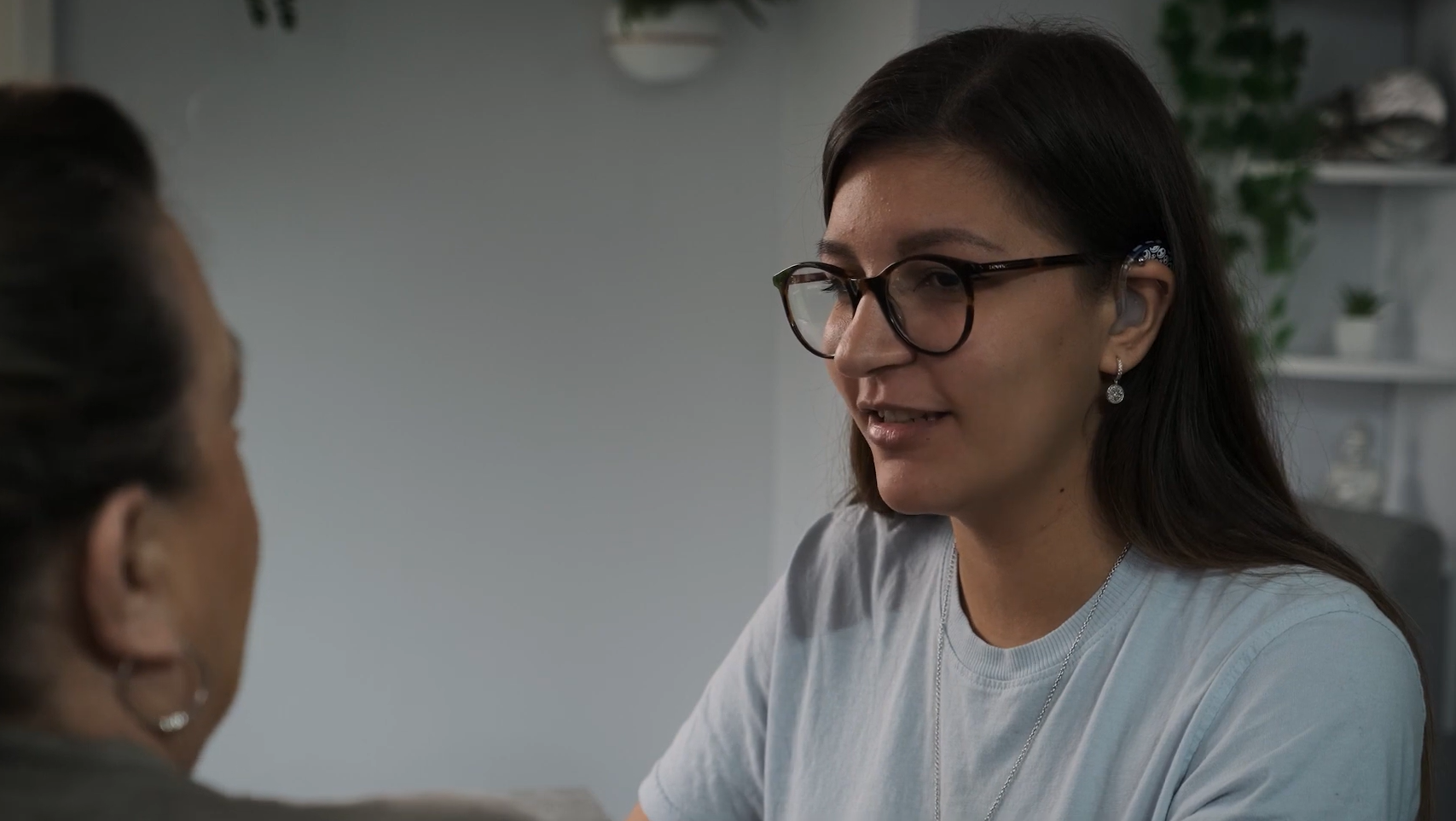Going blind is frequently rated as the health condition that people fear above all others. The Royal National Institute of Blind People (RNIB) say that this fear becomes a reality for 100 new people every day.
So when you see a person striding down the street sweeping their white cane in front of them, you need to consider what it has taken for them to achieve this apparent level of confidence.
It may well be that the person has a great deal of inner resilience, is good at learning new skills and has a supportive family. But they probably didn’t get to this point alone and it probably took quite some time.
They will probably have had input from a Vision Rehabilitation Worker.
Ask yourself how, with little or no sight, you would: read your letters and bank statements; get money out of a cash machine; cook a curry for your family; play bingo; watch your favourite TV show; go to the cinema or theatre; cross the road and catch a bus to the shops; tell a tin of soup apart from a tin of dog food; go on Facebook; tell your partner how good they look; or supervise your employees in the office?
Now ask yourself how you would feel if you were faced with doing these things when you feel so low you don’t even feel like getting out of bed.
Nobody should face the trauma of sight loss without the help of a professional. That is why Camden Social Services employs Vision Rehabilitation Workers to support residents of the borough who are living with sight loss.
It’s quite a job. Rehabilitation Workers need to understand how someone newly diagnosed with sight loss, or living with an eye condition for many years, feels. They need to know the practical solutions to problems like the ones posed above and many others.
Rehab Workers need to be able to work with each person to prioritise their individual solutions. They need to identify the significant risks involved in some of these activities, but assure the client they are risks worth taking. Then they need to teach these skills in a way that motivates. It takes time.
Furthermore, blind and partially sighted people do not live in a vacuum of good health. Vision loss is a significant predictor for depression and anxiety, as well as a major predictor of falls.
Sight loss is often directly linked to other conditions those seeking social care support may be living with.
- A significant side effect of Alzheimer’s is disruption to perception and spatial awareness.
- 60% of strokes cause non-correctable loss of vision.
- Sight loss is a significant potential risk for people with long-term diabetes.
Rehabilitation Workers can change lives of adults and children living with sight loss.
The Vision Rehabilitation Workers based in the Camden Adult Social Care Service provide comprehensive home-based assessments of how sight loss is impacting day-to-day activities.
We work with each individual to identify the things they want support with; the things they feel will enable their independence.
We do not provide care packages, but we do provide a wide range of practical solutions.
These solutions can include adaptive skills training; the issuing of small items of equipment; low vision assessments & the provision of magnifiers; advice and adaptations to improve home lighting; referrals to partner organisations and information & advice on a wide range of related subjects.
We work closely with the RNIB, DeafBlind UK, Guide Dogs for the Blind, BlindAid and many other organisations.
If you know of or are supporting anyone who lives in Camden and is living with sight loss we look forward to hearing from you to discuss how we could potentially help.



